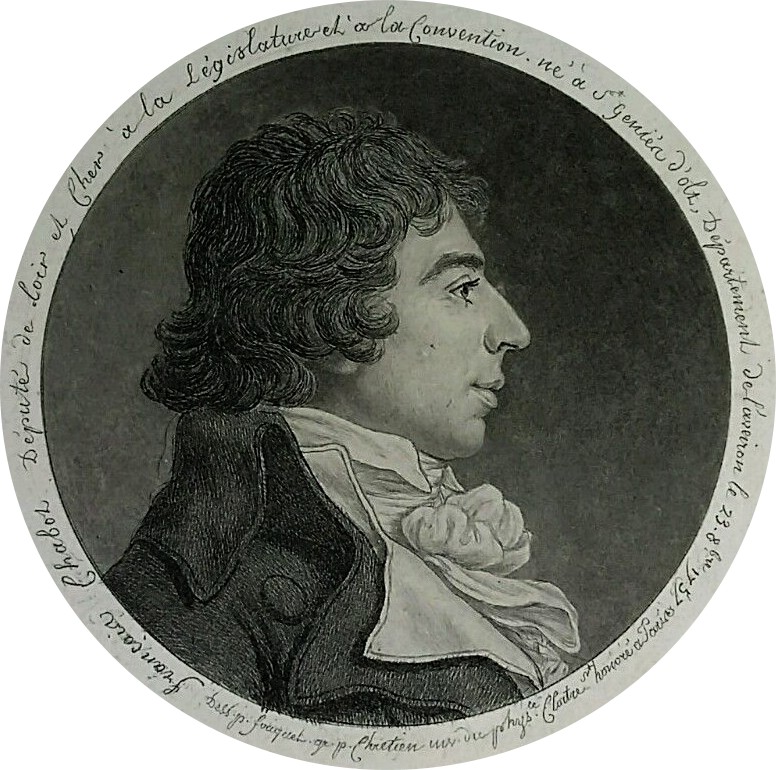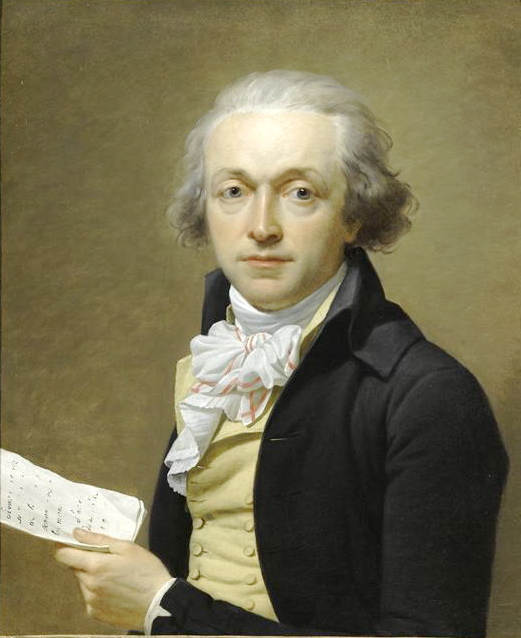|
Jean, Baron De Batz
Jean Pierre de Batz, Baron de Sainte-Croix, known as the Baron de Batz or de Bance,"Histoire de la Convention Nationale, d'après elle-meme: précédée d'un tableau de la France monarchique avant la révolution", Volume 6 1835 by Léonard Gallois on page 294 (26 January 1754 – 10 January 1822), was a French royalist and businessman. He was born in Goutz-les-Tartas (Gers), and died in Chadieu, near Vic-le-Comte (Puy-de-Dôme). His life and actions in the service of Louis XVI inspired several popular novelists, including Baroness Orczy (''Eldorado'', 1913), Rafael Sabatini (''Scaramouche'', 1921) and more recently Juliette Benzoni (''Le Jeu de l'amour et de la mort'' series, 1999–2000). Biography Royal agent Under the Constituent Assembly, de Batz's reputation as a financier led to his 28 May 1790 appointment to the liquidation committee, which was responsible for clearing public accounts. It appears that de Batz conducted liquidations of fraudulent debts, sold to his ... [...More Info...] [...Related Items...] OR: [Wikipedia] [Google] [Baidu] |
François Chabot
François Chabot (23 October 1756 – 5 April 1794) was a French politician. Early life Born in Saint-Geniez-d'Olt (Aveyron), Chabot became a Capuchin friar in Rodez before the French Revolution, while continuing to be attracted to the works of '' philosophes'' - the reason for which he was banned from preaching in the respective diocese. After the Civil Constitution of the Clergy, he got married and continued to act as constitutional priest, becoming grand vicar of Henri Grégoire, bishop of Blois; he was also the founder of the Jacobin Club in Rodez. He was later elected to the Legislative Assembly, sitting at the far left, and forming with Claude Bazire and Antoine Christophe Merlin the "'' Cordelier Trio''". Convention Re-elected to the National Convention for the ''département'' of Loir-et-Cher, he voted for the execution of King Louis XVI, and opposed the proposal to prosecute the authors of the September Massacres, as there were heroes of the Battle of Jemapp ... [...More Info...] [...Related Items...] OR: [Wikipedia] [Google] [Baidu] |
Espagnac
Espagnac (; oc, Espanhac) is a commune in the Corrèze department in central France. Geography The landscape is typically wooded hills. Economy The main economic activity is cattle raising though it now benefits from the recent trend of rural tourism. History Though evidences of neolithic and Celtic occupation exist on the commune's territory, the village itself was probably only founded during or after the Gallo-Roman era, near the site of a villa not yet excavated. Some evidences suggest the presence of other villas and of a tile factory. The name of the village if of Latin origin, possibly derived from a family name. During the Middle Ages, Espagnac seems to have become a dwelling of local importance, as attested by the existence of a Merovingian mint (three gold coins with the mention "Spaniaco Fit" have been found), of a large cemetery where sarcophagi have been exhumed and of an abbey. It seems to have been the head of a Carolingian vicaria. The first written mentio ... [...More Info...] [...Related Items...] OR: [Wikipedia] [Google] [Baidu] |
Georges Danton
Georges Jacques Danton (; 26 October 1759 – 5 April 1794) was a French lawyer and a leading figure in the French Revolution. He became a deputy to the Paris Commune, presided in the Cordeliers district, and visited the Jacobin club. In August 1792 he became French Minister of Justice and was responsible for inciting the September Massacres. In Spring 1793 he supported the foundation of a Revolutionary Tribunal and became the first president of the Committee of Public Safety. After the Insurrection of 31 May – 2 June 1793 he changed his mind on the use of force and lost his seat in the committee; Danton and Robespierre became rivals. In early October 1793, he left politics but was urged to return to Paris to plead, as a moderate, for an end to the Terror. Danton's continual criticism of the Committee of Public Safety provoked further counter-attacks. At the end of March 1794, Danton made a speech announcing the end of the Terror. Within a week he became embroiled in a scanda ... [...More Info...] [...Related Items...] OR: [Wikipedia] [Google] [Baidu] |
Guillotine
A guillotine is an apparatus designed for efficiently carrying out executions by beheading. The device consists of a tall, upright frame with a weighted and angled blade suspended at the top. The condemned person is secured with stocks at the bottom of the frame, positioning the neck directly below the blade. The blade is then released, swiftly and forcefully decapitating the victim with a single, clean pass so that the head falls into a basket or other receptacle below. The guillotine is best known for its use in France, particularly during the French Revolution, where the revolution's supporters celebrated it as the people's avenger and the revolution's opponents vilified it as the pre-eminent symbol of the violence of the Reign of Terror. While the name "guillotine" itself dates from this period, similar devices had been in use elsewhere in Europe over several centuries. The use of an oblique blade and the stocks set this type of guillotine apart from others. The display o ... [...More Info...] [...Related Items...] OR: [Wikipedia] [Google] [Baidu] |
Jean-Baptiste Du Val-de-Grâce, Baron De Cloots
Jean-Baptiste du Val-de-Grâce, baron de Cloots (24 June 1755 – 24 March 1794), better known as Anacharsis Cloots (also spelled Clootz), was a Prussian nobleman who was a significant figure in the French Revolution. Perhaps the first to advocate a world parliament, long before Albert Camus and Albert Einstein, he was a world federalist and an internationalist anarchist. He was nicknamed "orator of mankind", "citizen of humanity" and "a personal enemy of God". Biography Early life Born near Kleve, at the castle of , he belonged to a noble Prussian family of Dutch origin. The young Cloots, heir to a great fortune, was sent to Paris at age eleven to complete his education, and became attracted to the theories of his uncle the '' abbé'' Cornelius de Pauw (1739–1799), '' philosophe'', geographer and diplomat at the court of Frederick II of Prussia. His father placed him in the military academy of Berlin, but he withdrew at the age of twenty and travelled through Europe, prea ... [...More Info...] [...Related Items...] OR: [Wikipedia] [Google] [Baidu] |
Moses Dobruška
Moses Dobruška or Moses Dobruschka, alias Junius Frey (12 July 1753, Brno, Moravia – 5 April 1794) was a writer, poet and revolutionary. His mother was the first cousin of Jacob Frank, who claimed to be the Jewish messiah and founded the Frankist sect. On 17 December 1775 he converted from Judaism to the Catholic faith and took the name of Franz Thomas Schönfeld. On 25 July 1778 he was elevated to nobility in Vienna, becoming Franz Thomas Edler von Schönfeld. Together with , who did not convert, he became one of the main activists of the masonic lodge of the “Knights of St. John the Evangelists for Asia in Europe,” active in Germany and Austria between 1783 and 1790, which was the first German-speaking masonic order to accept Jews. In 1792, in the wake of the French Revolution, he traveled via Strasbourg to Paris and became a Jacobin, changing his name, once again, to Junius Frey. The new name derived from ''Junius'' from the Roman Junii family that fostered the famo ... [...More Info...] [...Related Items...] OR: [Wikipedia] [Google] [Baidu] |
Joseph Delaunay
Joseph Delaunay (24 December 1752, Angers – 5 April 1794, Paris) was a French deputy. He was national commissar at the Tribunal of Angers and, in 1791, he was elected as a deputy to the Legislative Assembly by the département of Maine-et-Loire. In 1792, he was re-elected as deputy to the National Convention by the same département. He was tried for corruption in the affair of the liquidation of the Compagnie des Indes Orientales, condemned to death and guillotine A guillotine is an apparatus designed for efficiently carrying out executions by beheading. The device consists of a tall, upright frame with a weighted and angled blade suspended at the top. The condemned person is secured with stocks at t ...d on 16 germinal year II (5 April 1794). Sources * ''Histoire de la Révolution française'' by Jules Michelet External links *Delaunay, On the reinforcement of the rôle of Paris's Comité de surveillance - Tuesday 2 October 1792 {{DEFAULTSORT:Delaunay, Jo ... [...More Info...] [...Related Items...] OR: [Wikipedia] [Google] [Baidu] |
Julien De Toulouse
Jean Julien known as Julien of Toulouse (1750 in Nîmes – 1828) was a deputy to the National Convention and a political figure in the French Revolution. Life A Protestant minister in Toulouse at the outbreak of the Revolution, in September 1792 Julien was elected as deputy for the département of Haute-Garonne at the National Convention which voted for the death of Louis XVI. He was next sent on a mission to Orléans and the Vendée, in which he acted as a committed Montagnard, before becoming a member of the Committee of General Security, in which he was put in charge of a report on the rebel and federalist administrators who resisted the events of 31 May. Due to this report Robespierre accused him of being a feuillant and counter-revolutionary, but Julien retracted his report and assured him he had been deceived. Orders were then put out for his arrest for fraud or trafficking his opinions and speculating in financial companies with Chabot, Basire and Delaunay, but ... [...More Info...] [...Related Items...] OR: [Wikipedia] [Google] [Baidu] |
Claude Basire
Claude Basire (1764 – 5 April 1794) was a French politician of the Revolutionary period. Biography Born in Dijon, he became a deputy for the Côte-d'Or in the Legislative Assembly, he made himself prominent by denouncing the Bourbon and the Tuileries Palace's '' comité autrichien'' (“Austrian committee”, the purported Royalist group supporting the Austrians with whom the country was at war). On 20 June 1792, he spoke in favor of the deposition of King Louis XVI, though on 20 September he advised discussion before moving to decide in favour of abolition. Elected to the National Convention, he affiliated with The Mountain, opposing the adjournment of the king's trial, and voting in favor of his execution. He joined the attack upon the Girondists, but, as member of the Committee of General Security, he condemned the Reign of Terror. He was implicated by François Chabot in the falsification of a decree relative to the East India Company. Although his involvement se ... [...More Info...] [...Related Items...] OR: [Wikipedia] [Google] [Baidu] |




